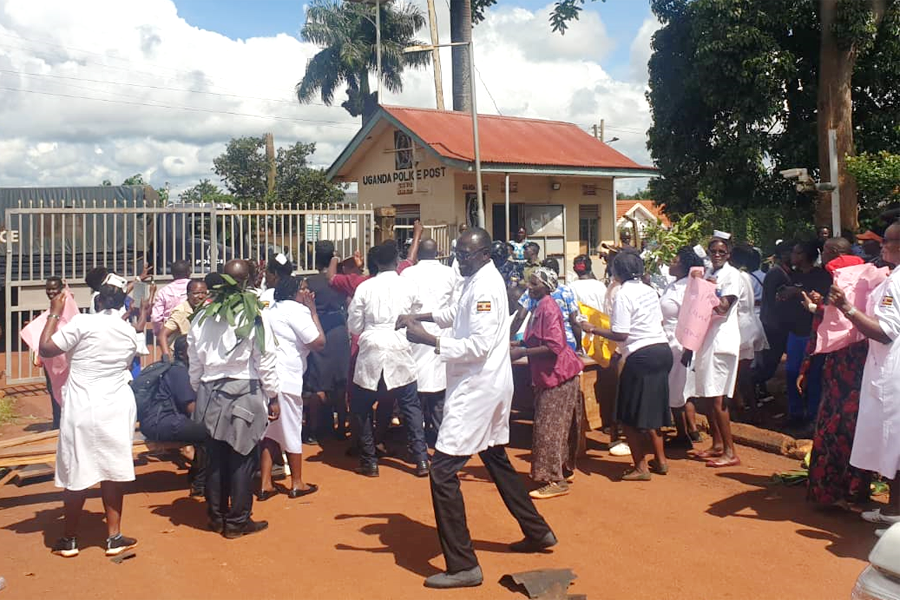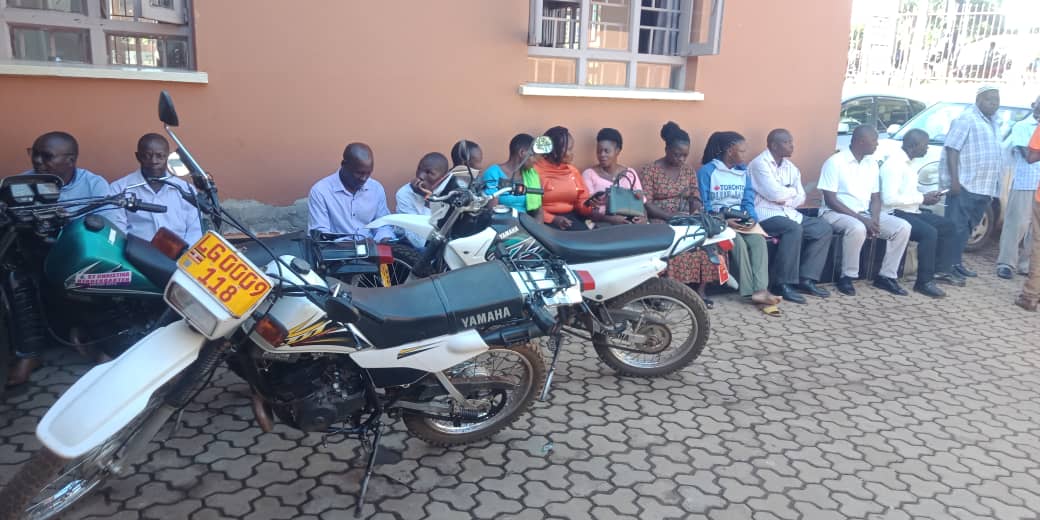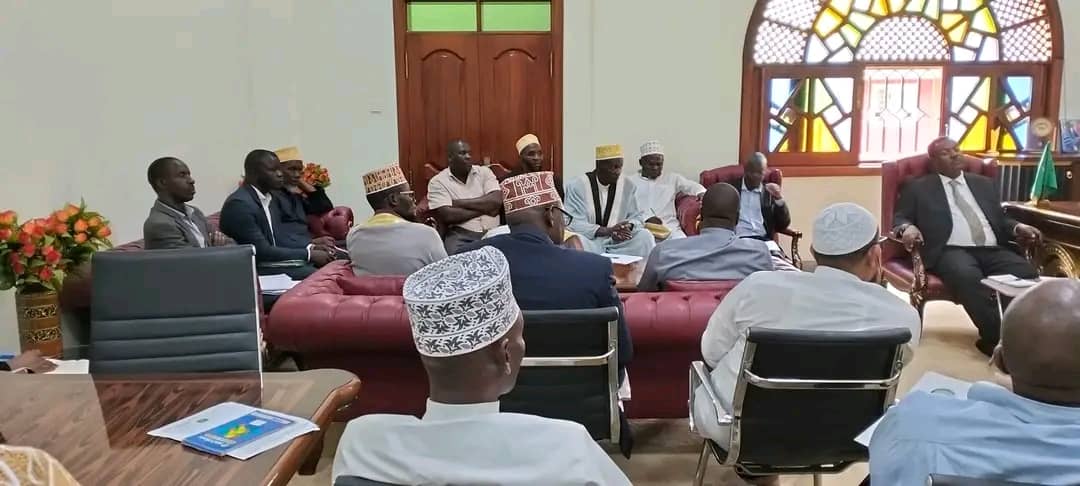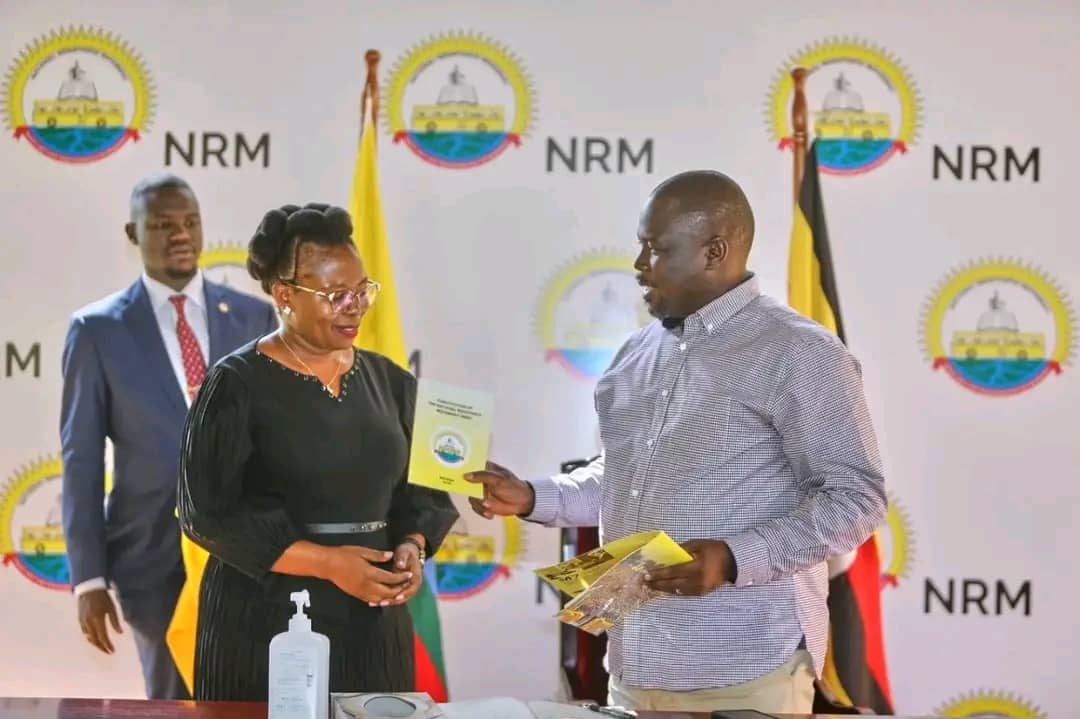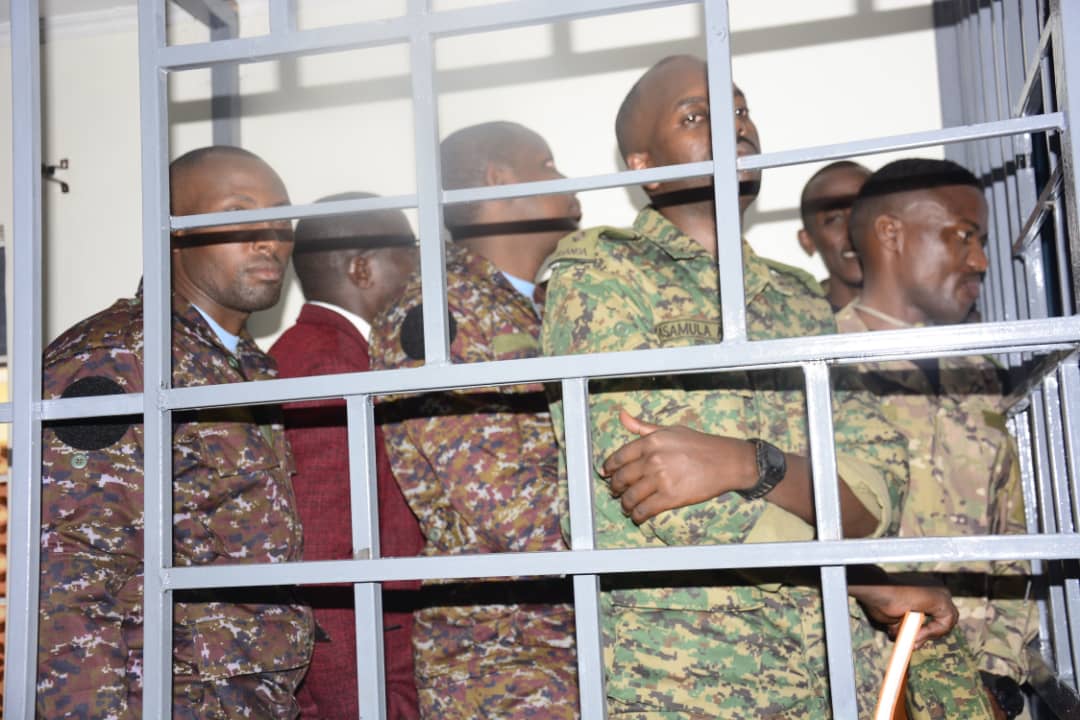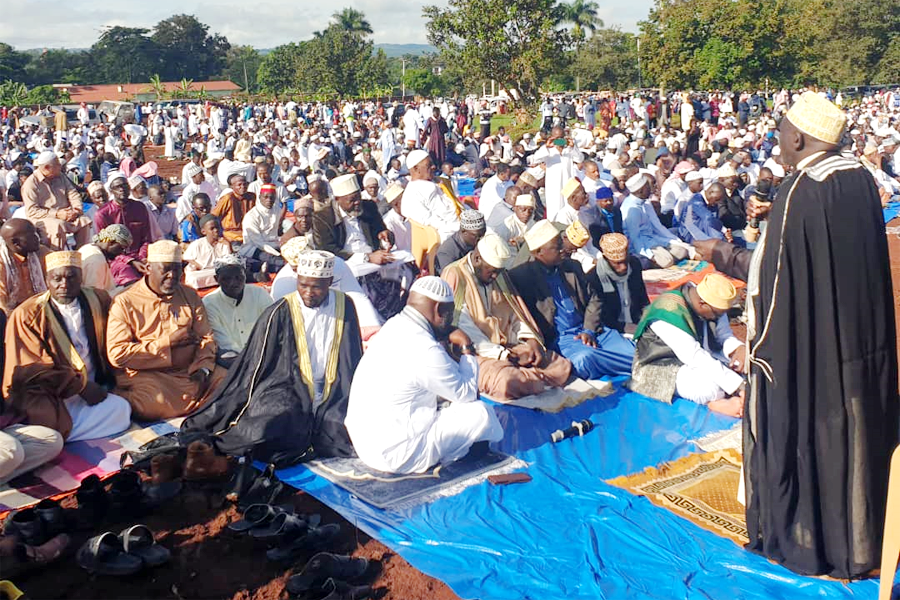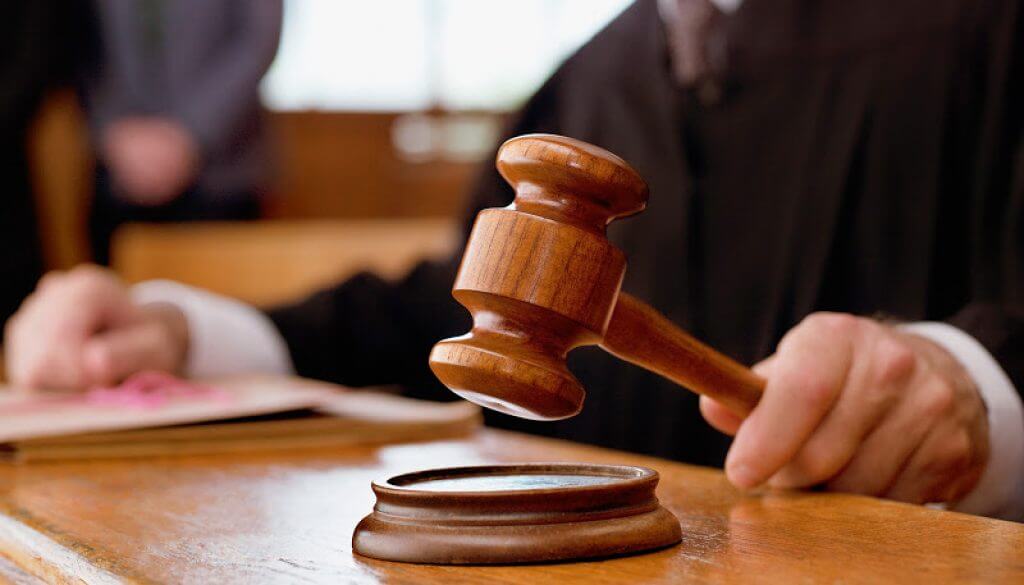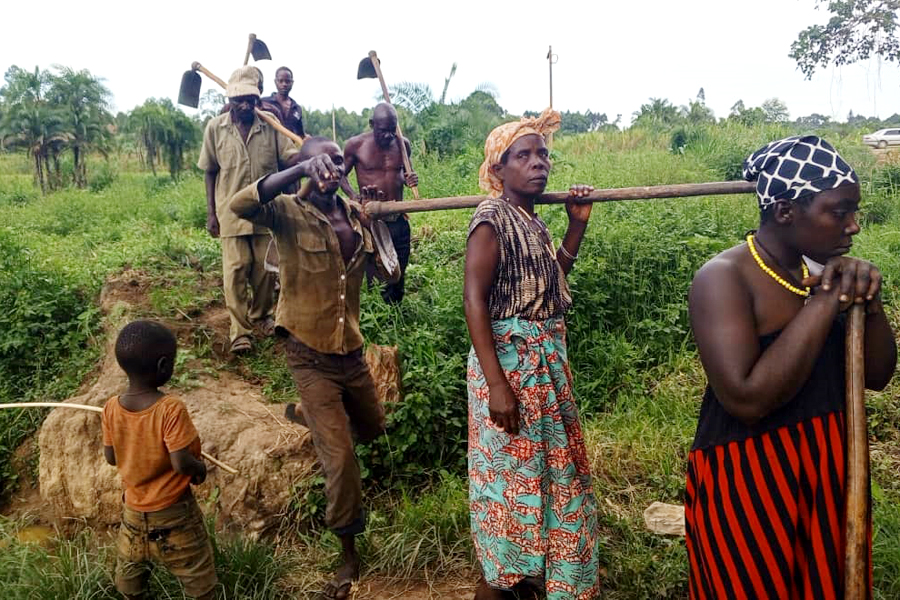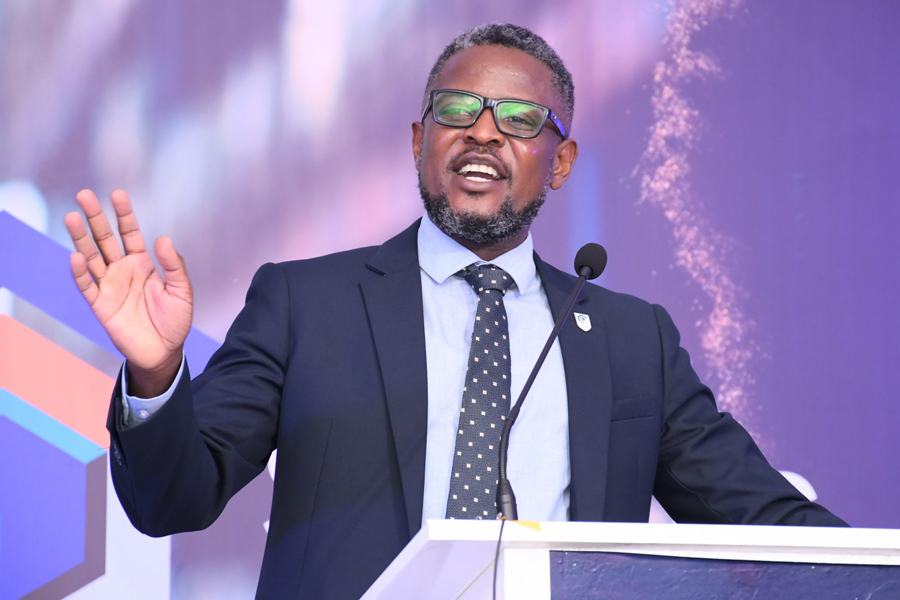Semakula Mulumba’s struggle for Uganda’s independence dates back in the 1940’s when he repeatedly clashed with the colonial Protectorate Government officials in Entebbe and British government officials in London.
He did not spare Kabaka Edward Muteesa II, whom he accused of conspiring with the colonial masters to suppress the indigenous communities.
His message became very popular with the masses, but became the most unwanted figure both but the colonialists and Kabaka’s Government at Mengo.
In a telegram to Mutesa on 21st February, 1949 he wrote: "The African people of Uganda should know that the powers conferred on either the Kabaka or the governor, have certain limits. Neither the Kabaka nor the governor has any power to enslave any section of the Uganda community. The people ought to know and safeguard their rights as citizens. They certainly have the right to speak their mother tongue just as pleased. Therefore, anyone - Kabaka, governor, Bishop, Priest, teacher, chief, peasant, etc who provokes the Africans by interfering in their conversations, or greetings of: Jambo, Bu’, etc, does so at his own risk. The Africans should take a stick and give him a good beating. That is the only way to put a stop to all that nonsense of gaoling people for saying 'BU'."
‘BU’ was the greeting slogan of Semakula Mulumba’s party which was in full known as “Bataka BU”. Party members would greet each other by simple shouting the last phrase “BU”. ‘Bu’ was the Kiganda rallying call for peasant action against oppression.
Both the colonial Government and the Mengo Establishment of Muteesa’s Government passed legislations outlawing the “BU” greeting.
Semakula Mulumba who at the time was in London moved from office to office and frantically wrote telegrams to whoever mattered, championing the call for Uganda’s independence.
As a result of his efforts, the United Nations Organisation (UNO) discussed Uganda's independence during a session in New York for the first time in 1947.
The struggle for Uganda's independence had begun in 1931 under the Bataka Party, a Buganda-based peasant movement. They opposed the 1900 Uganda agreement and subjugation by the British, among others.
Through the years, the movement changed names and approaches and re-emerged in the 1940s with the original name Bataka Party, led by James Miti.
At the time, the movement lacked a well-educated and charismatic leader to captain the struggle.
In 1947 Semakula Mulumba, a 34-year-old radical and charismatic university student, returned from England after his scholarship was terminated as part of a crackdown on independence freedom fighters.
Two years earlier, there had been a riot during which the colonial government carried out a brutal crackdown on independence crusaders.
One Indian was stoned to death, two Europeans were severely injured and eight Ugandans shot dead by the police, when the riots began in the first week of January 1945, according to a 1949 Confidential Inquiry Report.
Back home, members of the Bataka Party were impressed by Mulumba's charisma, eloquence and wealth of knowledge.
They raised money to send him back to England to complete his education and agitate for freedom. On October 2, 1947, he returned to England.
The Bataka Party wanted Buganda to secede and they totally opposed the colonial white paper 210, which pushed for the creation of the East African Federation. However, Mulumba lobbied for national independence instead, which annoyed party members.
Mulumba took the British head-on, attacking the British government as well as Kabaka Muteesa.
"They were pro British and I must excuse them because they were not enlightened. They knew nothing about democracy and, in fact, all the people in Uganda at the time knew nothing about democracy. I was the one who introduced the idea which I got from England in 1945 when I took part in the general elections after the war which the Labour Party won . I saw the British people having the right to elect their MPs and realized that the people of Uganda should have the same right to elect their MPs so that the sons of the Bakopi (commoners) could enter in the Lukiiko which was then the preserve of sons of chiefs," Mulumba said in an interview published in the February 15, 1980 issue of Weekly Topic.
He added: "They used to say mwana w' ani? (Whose son is that one?). That statement is still being quoted. But when I introduced the idea of democracy, the people fought for it and got it. Then democracy started in this country. Today, the people - do not know who introduced voting in this country", said Semakula Mulumba.
In 1947, Semakula Mulumba wrote a letter to each of the 625 members of the House of Commons and did the same with all the 840 members of the House of Lords.
However, back home in Uganda the colonial administration with the connivance of Kabaka’s government at Mengo, mention of any letters, telegrams and telephone calls from Mulumba were all banned.
Gambuze, a Luganda newspaper, got into trouble for publishing Mulumba's telegram to the Russian envoy dated April 29, 1948, emphasizing the urgent need for independence.
"The political situation for Africans in East Africa is very alarming," the letter read.
Meanwhile a civil servant, Festus Kibuuka Musoke, was arrested at Entebbe Airport as he returned from London because he was carrying Mulumba's letter to Bishop Cyril Stuart who was then based in Uganda.
Musoke was sentenced to six months imprisonment with hard labour but this was later reduced to three months. Court decided that the letter contained seditious material.
Mulumba's activities in Britain became of such great concern to the extent that the British parliament discussed him on 3rd November, 1948, according to the Hansard.
Sir Peter Macdonald, the representative for the Isle of Wight, demanded to know what the British government was doing about Mulumba, who was "waging war against the British government and the Government of Uganda".
The British colonial secretary, Mr. Creech Jones, dismissed Mulumba as a man representing a "mushroom political party" that was not recognised by the protectorate and Mengo governments.
He described Mulumba's party as being "unrepresentative of the great mass of the people of Uganda". He accused Mulumba of consistently refusing to use constitutional methods to express his views.
However, the Bataka wrote letters to the British Prime Minister and the UN, saying they supported Mulumba, and the British resented him because he was fighting for the independence of Uganda.
Surprisingly as Uganda approached independence, and political parties including traditional rulers were being invited at table to discuss the possible independence of Uganda, Semakula Mulumba was never invited to officially participate in the process that laid out the framework for Uganda's independence.
Finally, when he returned at independence, egoism and politics of intrigue came in. He was arrested in 1969. Upon his release, Mulumba quit politics and nursed his frustration quietly. In 1980, he said: "You do good to them and they forget you; for they have forgotten me".
The author is minister of State for Lands


